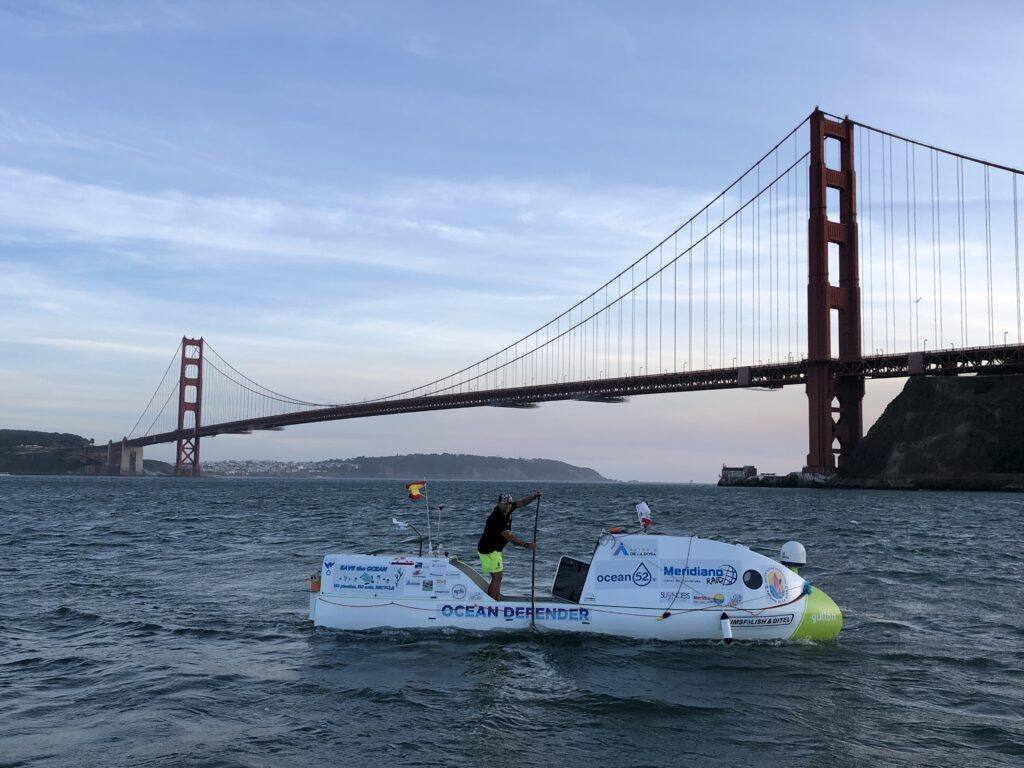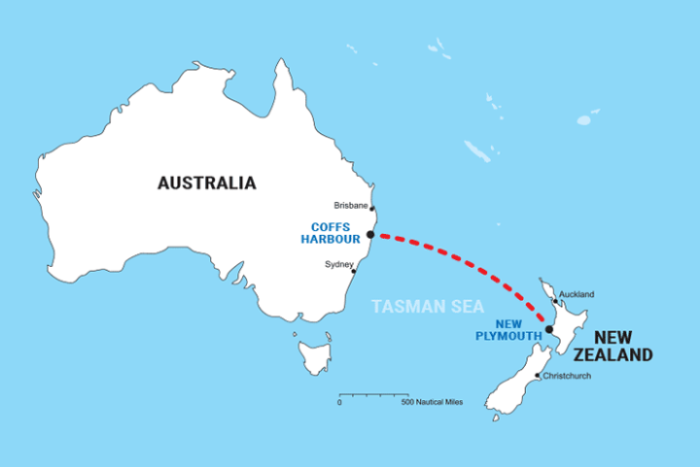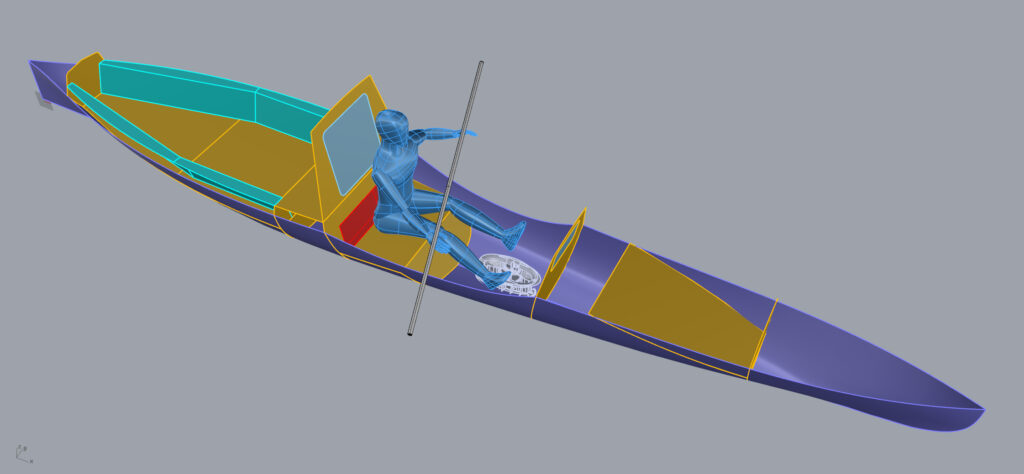In early June 2020, I will be leaving from Monterey harbor (California), in a solo kayak, with the intention to reach Hawaii unsupported. Getting ready for it – physically, mentally and emotionally – is taking me on a learning journey.
I want to share some insights that have come to my mind lately. Perhaps these break no ground, they are just ideas jotted on paper that might be helpful in your life, as they are in mine.
1. ANTONIO DE LA ROSA – This summer, my friend Antonio de la Rosa from Spain crossed the mid-Pacific from California to Hawaii, on a Stand-up-Paddleboard. You might have heard of it because, other than his social media pages such as Facebook and Instagram, the record-breaking crossing made the news on many important medias as he finished successfully, reaching Waikiki in Honolulu, Hawaii in 76 days.

I supported Antonio in his preparation at Seatrek in Sausalito, Calif. for two weeks before his departure (early June 2019), so had the pleasure to spend quality time with him and to get to know him on a personal level.
Antonio is not short of an amazing athlete, he has done SO MUCH!! The Lapland Extreme challenge (1,000 km in skis at -30 Celsius in 27 days), rowed the Atlantic in an ocean rowing boat solo (4,700 km in 64 days) went around the Spanish peninsula (3,500 km in SUP in 141 days), did the Iditarod race in Alaska (1,700 km in 42 days), etc. etc…-
Interestingly, for such an accomplished ultra-endurance athlete, Antonio comes across as “any guy you could meet”: He is very easy to connect with, easy to speak to about anything… he is literally the humblest guy you’ll ever meet.
Antonio is the kind of guy for whom everything seems EASY: “Not-a-ploblem, z’iz iz perfect”, I can still hear him say in his Spanish-accent tainted English.
As I got to spend more time with him (“otra cerveza, por favor) I grasped that there was something about his personality that was different, but I couldn’t quite pinpoint what it was. Something subtle, but something powerful. Something that made him the most flexible man on the planet in front of any situation or unfolding event. This was something important for me to grasp, as it could help me in my own crossing. What could that be?
Then Antonio left the California shore, leaving the Golden Gate Bridge behind him, and I still hadn’t figured it out…
As I followed Antonio on his daily progress during the crossing, I tried to analyze his comments and videos he would post on social media, with the hope of deciphering his hidden power LOL. Slowly, I realized that he had this amazing attribute: “nothing that could happen could affect his mood. Nothing!”.
In his videos, I started to hear these easy words repeated: “Es lo que toca”, – which could be translated as “That’s how it is”.-
- “Weather is going to be bad for the next 10 days? Es lo que toca”
- “Having a hard time going westbound because the wind pushes me south? Es lo que toca”.
- “At this speed, I will reach Hawaii in 80 days instead of 60!, Es lo que toca”.
I could feel, intimately, that his strength relied on these four words. But I couldn’t make sense of it just yet, because I couldn’t associate this to a personality trait or a habit… until I heard Scott Donaldson in a podcast. That was when 2+2 clicked in my head.
2. SCOTT DONALDSON – Scott is another one of these humble and approachable super athletes. Check him out – He is another amazing human being that you should know. Scott solo kayaked across the Tasman Sea, from Australia to New Zealand. He just wrote a book, Relentless. Make sure you check this book out.

As part of my preparation several months ago, I reached out to Scott in New Zealand by email, asking for advice. Unselfish and willing to help a fellow ocean adventurer, Scott made himself available to Rob Feloy (my boat builder in England) and me during a long video conference call. We talked about boat building and configuration, air flow in the cabin, equipment, solar panels, GPS and gear, and more. So interesting!

Such a source of knowledge and inspiration! I had to know more about him. So, over the next few months, I read every article and heard every interview I could find on Scott. In one interview I found online, he laid it out plain-and-simple: It’s all about managing EXPECTATIONS.
At one point during his crossing, he was to withstand a coming storm. Before it hit his vessel, Scott prepared his mind to deal with these four days, as such was the time it was predicted to last by his support crew. During the storm, laying in his coffin-like cabin, he used every trick in his mental toolbox to deal with the situation. Little did he know that the storm would last six days, not four as anticipated, and that he had to extend his ordeal longer.
He had made an ASSUMPTION that it would last four days, so he created an EXPECTATION of dealing with it four days. This meant that the extra two days were Hell. Had he created an EXPECTATION of it lasting “indefinitely”, – or “until it’s over”- , or NO EXPECTATION at all, he would’ve suffered less!
- For Scott, the key is “manage your EXPECTATIONS.”
- For Antonio, it is more like “have no ASSUMPTIONS at all!”. Es lo que toca!!
3. LET’S LOOK AT WHAT ASSUMPTIONS AND EXPECTATIONS ARE:
- ASSUMPTIONS: “a thing that is accepted as true or as certain to happen, without proof”
- EXPECTATIONS: “a strong belief that something will happen or be the case in the future”
I had read about managing our own ASSUMPTIONS in this amazing book called “The four Agreements”, by don Miguel Ruiz. So I picked it up again:
“The third agreement, “Don’t make assumptions” describes the issue of making assumptions, how it leads to suffering, and why individuals should not partake in making them”…. “We have the tendency to make assumptions about everything. The problem with making assumptions is that we believe they are the truth. We could swear they are real. We make assumptions about what others are doing or thinking — we take it personally — then we blame them and react by sending emotional poison with our word. That is why whenever we make assumptions, we’re asking for problems. We make an assumption, we misunderstand, we take it personally, and we end up creating a whole big drama for nothing.”
The Four Agreements
We make assumptions and create expectations all the time: It’s natural to make them. In fact, each time we project ourselves in the future, or try to predict a situation that may happen, we make assumptions. From those assumptions, we create our own expectations. Not all EXPECTATIONS are bad. This is how we plan for the future, in order to be well prepared.
4. BACK TO MY OCEAN CROSSING CHALLENGE, and managing my own expectations:
- Question: “What will the weather be during crossing? Warm and sunny, cold and wet?”
- Answer: I should be ready and expect a tough time. Doing otherwise would be unwise. A wrong appreciation would be a mistake.
Having the wrong expectations can be a source of a lot of frustrations, and failure. We see it every day: we expect our kids to brush their teeth on the first request (*yay right), our colleague to be on time, the business presentation to be ready, traffic to work to be light, weather to stay good, etc…. so let’s just make sure we make the right ones! Ha.
5. CAN WE TRAIN IT? – Now that I know I need to get better at managing my ASSUMPTIONS and EXPECTATIONS, in life, and also during that crossing, all I need to do is TRAIN that concept on a daily basis: Let’s apply this “no assumptions nor expectations attitude” to my daily life.
Like everything, it will take practice. There are two options:
- Option 1: Make no assumptions and have no expectations. That would mean stop projecting myself in the future, and live life in the NOW. That would be mindfulness. I think meditation (which I practice) is very helpful for that.
- Option 2: Make less of them (remove the ones that are easy to avoid, or that are negative) and get better at managing them. I’ll just be checking on myself carefully to see if I form mis-expectations. Self-checking daily basically. Every time I feel disappointed, I’ll try to study my own behavior and see if I has the wrong expectations. Then I’ll try to change them or remove them from my thinking.
Oh, you thought I was going to give you a definitive answer!? Haha. I don’t have one! I’m searching, like you.

Let’s keep searching and good luck, we will get there… one day (no expectations intended) 😉
Aloha, Cyril – www.SoloKayakToHawaii.com
